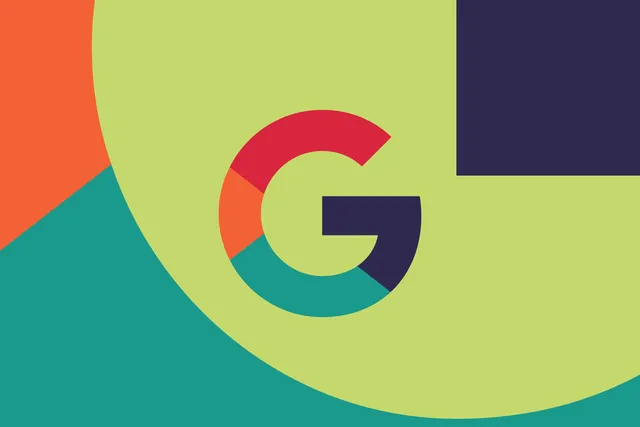Longtime competitors of Google, such as Yelp and DuckDuckGo, scored a significant win when a federal judge declared Google an illegal monopoly. Yet, their public reactions to the ruling were notably cautious. The reason? While the ruling is a crucial step, it marks just the beginning of the challenging journey to restore competition. The judge has yet to determine the specifics of this restoration, leaving much at stake. With numerous potential remedies on the table, Google’s rivals are advocating for changes they believe will level the playing field—though achieving these changes may prove more difficult than it seems.
A Monumental Decision, but More Work Ahead
“We’re encouraged by the decision, but a strong remedy is critical,” stated Yelp CEO Jeremy Stoppelman in a blog post following the ruling, referring to the upcoming trial phase set to begin in September.
DuckDuckGo’s senior vice president of public affairs, Kamyl Bazbaz, echoed this sentiment. “We’ve passed a key milestone, but there’s still a lot of history to be written,” Bazbaz said. “Google will do anything it can to get in the way of progress, which is why we hope to see a robust remedies trial that can really dig into all the details, propose an array of remedies that will actually work, and set up a monitoring body to administer them.”
These statements underscore a crucial point: while Judge Amit Mehta’s ruling that Google violated antitrust law is a landmark decision, the remedies phase will be just as critical—if not more so. The liability phase established that Google breached the Sherman Act by engaging in exclusionary contracts with phone and browser manufacturers to secure its position as the default search engine. In the upcoming remedies phase, Mehta will decide how to restore competition in general search services and search text advertising. However, a weak remedy could simply allow Google to maintain its dominance with minimal changes.
Lessons from Europe: The Importance of Implementation
DuckDuckGo, more than most, understands the significance of effective remedies. Years ago, Google was similarly ruled a monopolist in the European Union, leading to the imposition of a choice screen designed to foster competition by allowing users to select their default search engine. However, this measure hasn’t delivered the impact competitors had hoped for, and Google remains overwhelmingly dominant in the region.
“We can’t underscore this enough: the implementation details matter,” Bazbaz emphasized. In the EU, “some solutions show promise, but Google has found it relatively easy to circumvent their implementations.” To prevent a similar outcome in the U.S., DuckDuckGo is advocating for a team of “truly independent” technical experts to oversee the enforcement of any court-imposed remedies, ensuring that Google cannot find new ways to maintain its preferential treatment.
DuckDuckGo has also suggested that some European solutions could be effective if better implemented. For example, rather than appearing just once during initial device setup, a choice screen could be shown periodically to remind users of their options. Conversely, the company is calling for a ban on “dark pattern” pop-ups—manipulative design techniques that nudge users back toward Google’s default services, which are not currently enforced in the EU.
In addition to these proposals, DuckDuckGo is urging the court to prohibit Google from purchasing default status or pre-installation on devices—a move that could jeopardize Google’s multibillion-dollar deal with Apple. Furthermore, they advocate for ensuring that Google provides access to its search and ad APIs to other companies.
Breaking Up Google: A Straightforward Solution?
Yelp’s Stoppelman has been even more direct in his recommendations. He believes Google should be required to “spin off services that have unfairly benefited from its search monopoly.” According to Stoppelman, this is a “straightforward and enforceable remedy” that would prevent future anticompetitive behavior. Additionally, he argues that the court should ban Google from using exclusive default search deals and from “self-preferencing its own content in search results.”
Other advocates for stronger enforcement against Google, including organizations representing publishers who rely on the search giant for advertising and traffic, have their own ideas. During a call with reporters organized by the American Economic Liberties Project (AELP), Digital Content Next CEO Jason Kint suggested that forcing Google to separate its Chrome and Android businesses could be a powerful remedy. Kint argues that the data Google collects from its browser and mobile operating system plays a crucial role in strengthening its search dominance. “The underlying data that interlocks all that is the critical asset that needs to be constrained,” Kint said. AELP’s senior legal counsel, Lee Hepner, added that separating these businesses “would open up competition for alternative search rivals on Chrome or Android.”
The Road Ahead: Potential Challenges and Opportunities
Despite the momentum from the recent ruling, the road to meaningful change is likely to be a long one. Google’s president of global affairs, Kent Walker, has already confirmed that the company plans to appeal the ruling, stating that while the decision “recognizes that Google offers the best search engine, it concludes that we shouldn’t be allowed to make it easily available.”
Furthermore, the looming influence of artificial intelligence (AI) adds another layer of complexity to the case. AI could significantly alter the business model of search in the coming years, potentially rendering traditional remedies ineffective. Hepner noted that the court might need to consider solutions like requiring Google to open access to its large language model, ensuring that any remedy remains relevant in the face of technological advancements.
While Department of Justice antitrust chief Jonathan Kanter hasn’t detailed the specific remedies the department will seek, he has emphasized that they “need to be forward-looking” to address emerging issues like AI. Kanter has also previously stated that the division would “pursue structural remedies in our conduct cases whenever possible,” suggesting that breakups could be on the table rather than mere behavioral changes. Should the DOJ propose a sweeping remedy and Judge Mehta rules in favor of it, the outcome could dramatically reshape the tech landscape.
A New Era of Innovation?
“I believe that Judge Mehta’s decision will be as consequential, if not more so, than the Microsoft antitrust case 23 years ago,” Stoppelman wrote. That ruling spurred a wave of innovation, creating an environment where promising startups could flourish—including Google itself. It’s exciting to consider the new technologies and innovations that could emerge from this ruling over the next decade and beyond.
As Google’s rivals await the next phase of this landmark case, they are cautiously optimistic that the right remedies will not only restore competition but also foster a new era of innovation in the tech industry. Whether those remedies will be strong enough to break Google’s stranglehold on the market remains to be seen, but one thing is certain: the outcome will have far-reaching implications for the future of search, advertising, and beyond.










